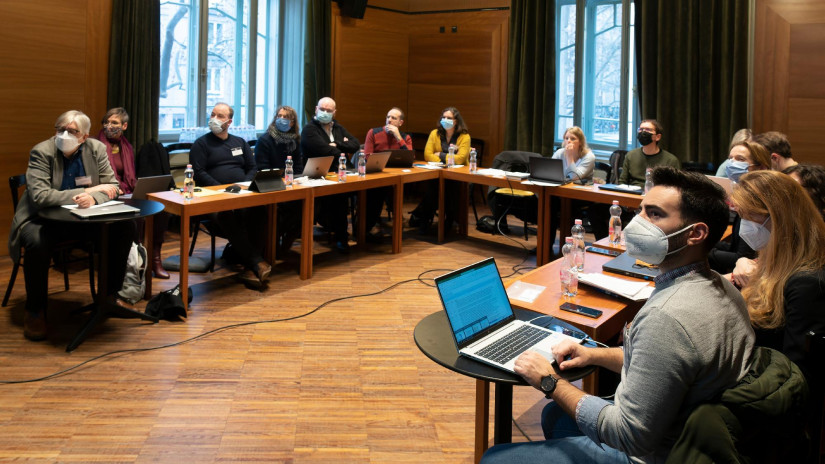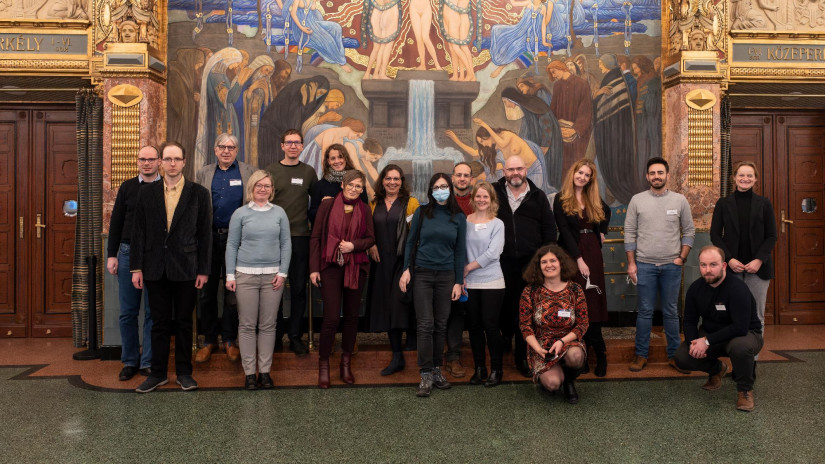The international music theory portal is already being tested
The portal of the EU HarMA (Harmony and Music Analysis) project is ready, and it is currently being tested and will soon be made public, according to an announcement after a meeting at the Liszt Ferenc Academy of Music, one of the institutions participating in the project.
The HarMA initiative is a European transnational initiative to promote the teaching of music theory at higher education level in music education institutions, the first meeting of which was organised in April 2018. The programme is part of the EU Erasmus+ Strategic Partnership since 2020 and involves the music academies of Brussels, Budapest, Gdansk, Leipzig, Tallinn and the European Association of Conservatoires, Music Academies and Music Colleges (AEC).
The Liszt Ferenc Academy of Music recently hosted another conference. The main speaker at the event was Salvatore Gioveni, Professor at the Royal Conservatoire of Brussels, the initiator and leader of the project, who presented the status of the project, the milestones achieved so far, the measurable results, the project elements implemented and the tasks for the near future. As he said, the HarMA web portal has been completed and is already being tested, and the various databases and materials are being uploaded, so it is expected to be up and running and open to the public in the near future.

HarMa conference was hosted by the Liszt Academy in January (photo: Liszt Academy/János Posztós)
The aim of the project is to map and provide a comprehensive picture of higher education in music theory in the form of course descriptions, a literature repertory and a multilingual glossary of terms. A further important aspect is to create a platform for the exchange of pedagogical experience, not only between the participants in the programme, but also between all European higher education institutions. Music theory teachers in music higher education institutions have increasingly called for the creation of a European network specifically for them, which, in addition to the exchange of experience, would also facilitate student and teacher mobility. Until now, there has been no European cooperation to help teachers of harmony, music analysis, aural training and solfege in these institutions, only for researchers. This project is a response to this need.

The participants of the conference (photo: Liszt Academy/János Posztós)
The participating institutions are responsible for different topics: the Conservatoire Royal in Brussels is creating a digital platform for a European-wide music theory database; the Akademia Muzyczna in Gdansk is creating a bibliography of music theory textbooks and reference books used in European higher education institutions; the Liszt Ferenc Academy of Music in Budapest is creating a catalogue of music theory courses and departments available in Europe, their requirements and their functioning (project leading professors: Boglárka Terray and Máté Balogh); the Hochschule für Musik und Theater Felix Mendelssohn-Bartholdy in Leipzig is compiling and standardising the terms used in music theory in English; and the Eesti Muusika-ja Teatriakademie in Tallinn is organising music theory training and short courses for teachers and students.
The project also offers the possibility of larger, international meetings, where the operational staff report on the partial results and decide on the next steps, also smaller-scale meetings for the participating trainers and intensive programmes with one or two trainers from the participating institutions and five to six students per institution.


